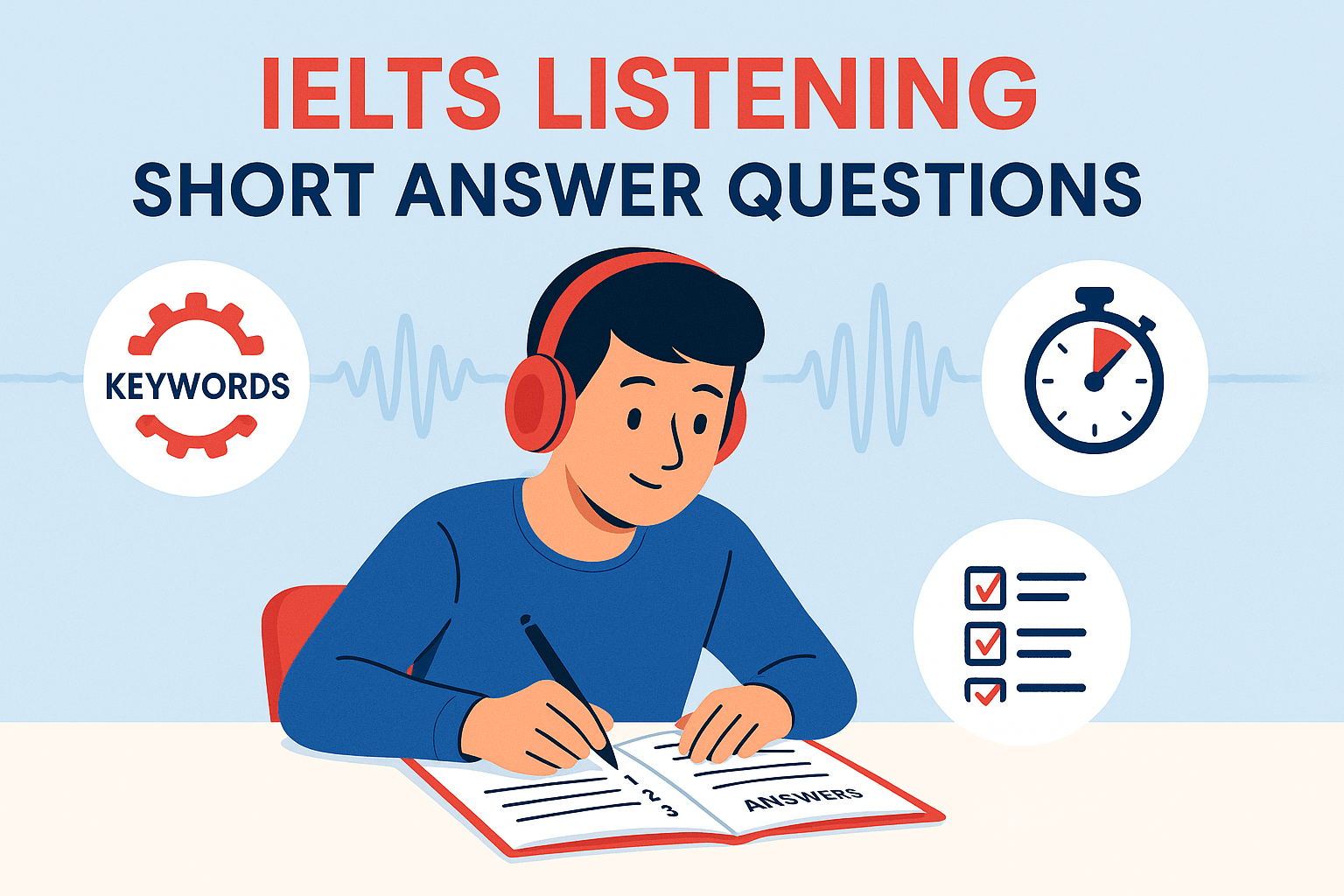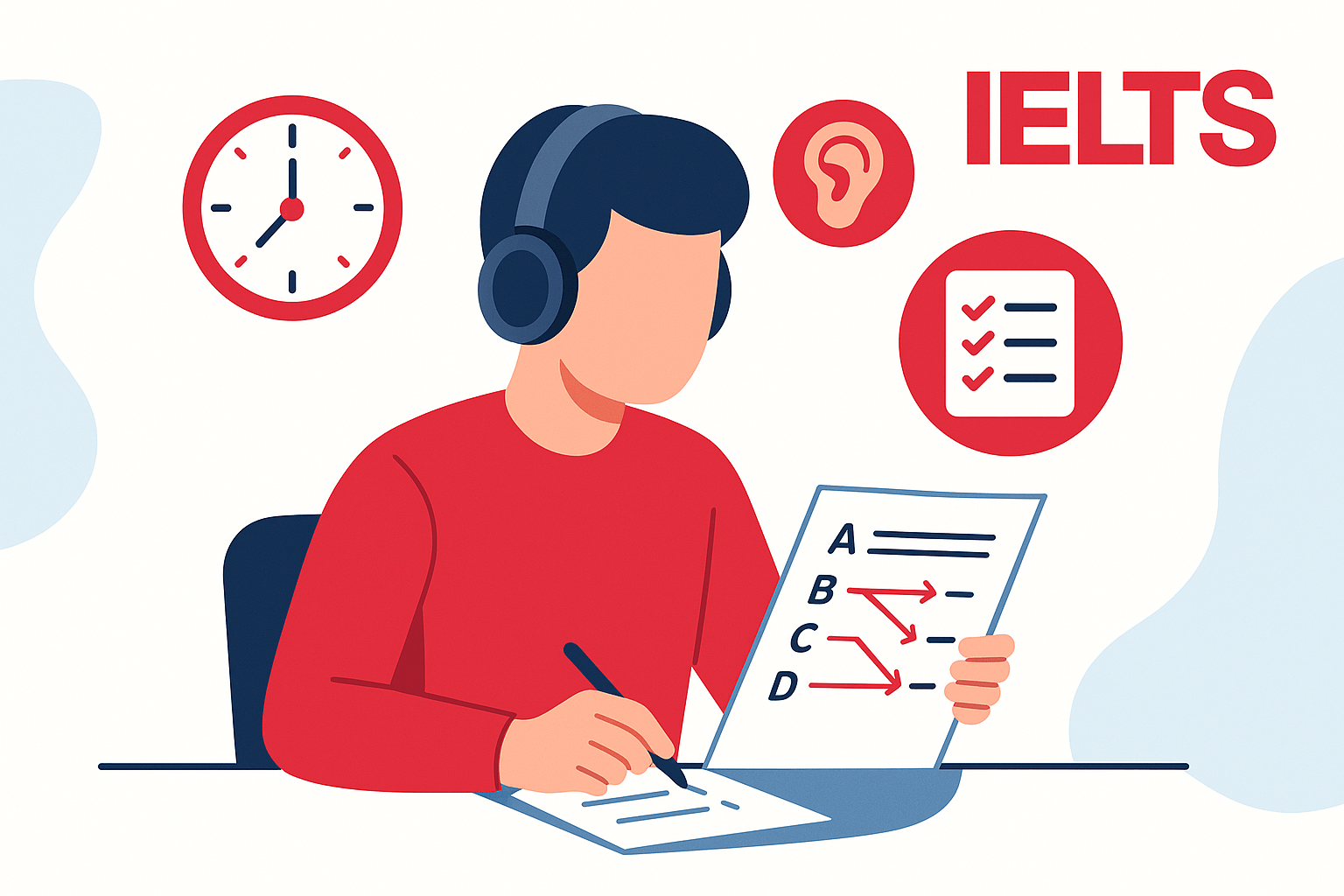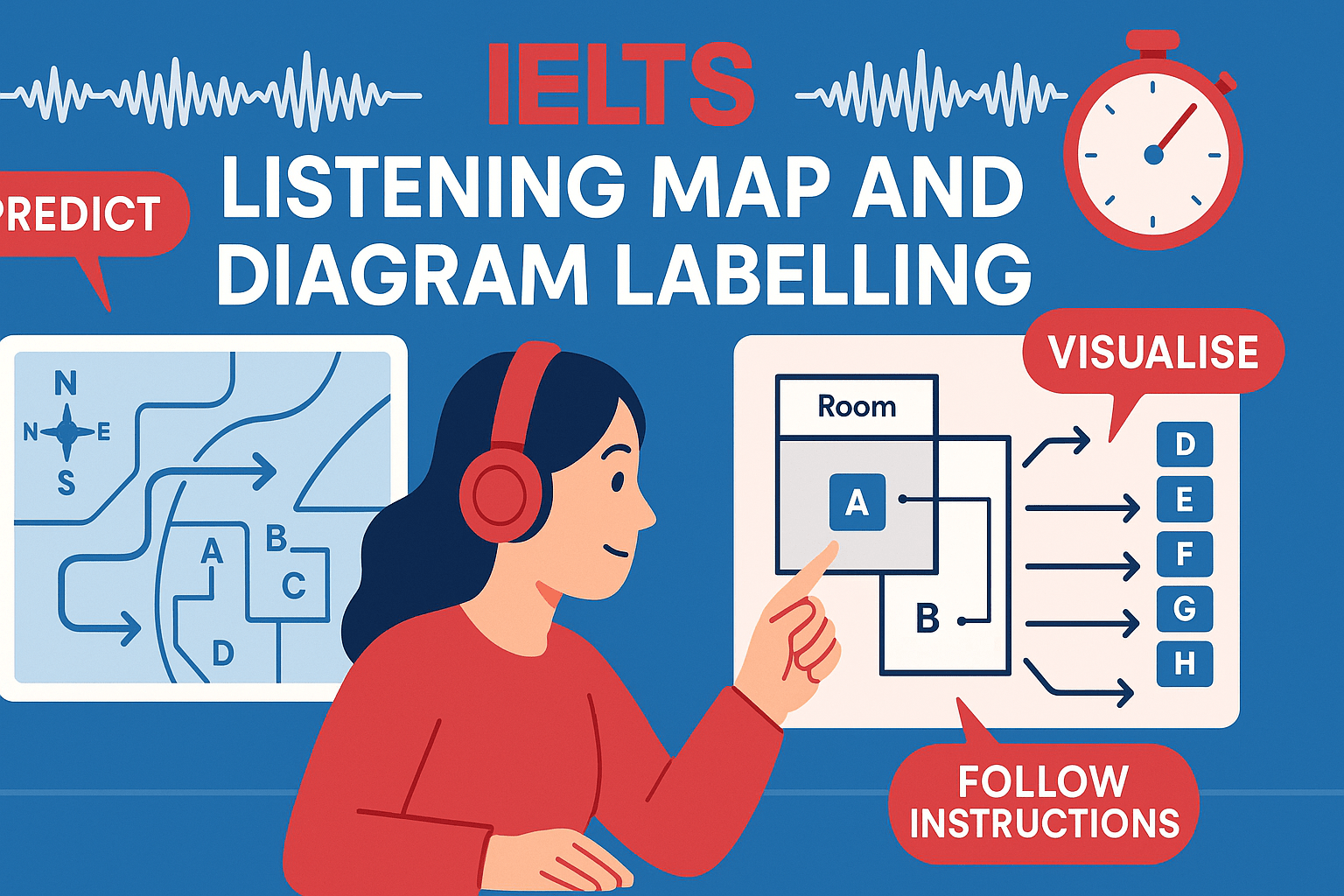- The Biggest Mistakes I See IELTS Listening Students Make
- Predict the Type of Answer You Need
- Underline Keywords in the Questions
- Listen for Paraphrased Information
- Watch Out for Distractors
- Use Time Wisely Between Sections
- Stay Calm When You Miss an Answer
- Be Careful with Spelling and Grammar
- Stick to the Word Limit
- Practice All Question Types
- Use Trusted IELTS Preparation Resources
- Final Thoughts
- FAQ: IELTS Listening Tips for Band 7+
If you’re aiming for Band 7 or higher, mastering the right IELTS Listening tips can make all the difference. As an international IELTS teacher working with students from around the globe, I’ve seen brilliant learners lose marks not because of their English level—but because they didn’t follow key listening strategies. In this post, I’ll walk you through the 10 most essential tips that have helped my students consistently achieve their target scores.
The Biggest Mistakes I See IELTS Listening Students Make
One of my students, a pharmacist from Vietnam, kept scoring Band 6.5—again and again. She understood English well, but during the test, she’d miss answers due to distractions, incorrect spelling, or lack of prediction skills. Once we corrected her technique with targeted practice and strategy tweaks, she hit Band 7.5 within three weeks.
That experience—and many more like it—is why I created this list of practical IELTS Listening tips. These tips aren’t just theory. They’re real solutions to real problems my students have faced.
Predict the Type of Answer You Need
Before the audio starts, use the time given to read ahead and predict what kind of information is missing. Is it a number? A name? A location?
This skill is especially crucial in sentence completion and form-filling tasks. Being mentally prepared helps your brain actively listen for the right answer.
👉 Learn more about this in our IELTS Listening Guide for Band 7–9.
Underline Keywords in the Questions
Focus your eyes and ears on keywords. Underlining or circling important words in the question gives you a mental anchor as the audio plays.
Look for proper nouns, adjectives, numbers, or verbs that signal what the answer relates to.
Listen for Paraphrased Information
IELTS Listening is not a dictation test. They rarely use the exact words from the question. Instead, they paraphrase.
For example, if the question says “price reduction,” the audio might say “discount.” Train your brain to recognize synonyms and paraphrased versions during IELTS Listening practice tests.
Watch Out for Distractors
This is a trap many students fall into. IELTS Listening often includes false leads—the speaker might say one thing, then correct themselves.
E.g., “Let’s meet at 5 p.m. – actually, sorry, can we make it 6?”
If you wrote down 5, that’s incorrect.
Being alert and flexible during such moments is key.
Use Time Wisely Between Sections
You’re always given some time to check your answers and look ahead to the next section. Don’t waste this time.
I tell my students to split it:
→ Use the first half to review answers,
→ The second half to preview the next questions.
This habit reduces errors and builds focus.
Stay Calm When You Miss an Answer
Even strong candidates panic when they miss one answer—and then miss three more because they’re still thinking about it.
One of my Canadian students once lost an entire section due to this. We trained him to let go instantly and keep going. Next attempt? Band 8.0.
You can always guess and come back to it if time allows.
Be Careful with Spelling and Grammar
IELTS is unforgiving when it comes to spelling and grammatical errors.
For example:
✔ “University” – Correct
✘ “Univercity” – Incorrect
Always double-check plural forms, verb endings, and word spellings. Practice materials from IDP and the British Council can help sharpen these details.
Stick to the Word Limit
If the instruction says “NO MORE THAN TWO WORDS,” and you write three—it’s wrong, even if the content is perfect.
Always scan for word limit instructions at the start of the task. This is a common error even among advanced learners.
Practice All Question Types
From multiple choice to map labelling, each task tests different skills. Many students focus only on one or two types and struggle with the others in the real exam.
Make sure your prep includes full coverage. Our complete IELTS Listening strategy guide dives into this in detail.
Use Trusted IELTS Preparation Resources
It’s essential to practice with authentic IELTS materials. Stick with official sources like:
Avoid generic English listening content unless it mirrors IELTS format and timing.
Final Thoughts
Your IELTS Listening score depends on more than just understanding English—it’s about knowing the test structure, recognizing common traps, and practicing with purpose.
Every tip on this list is grounded in real success stories. I’ve seen hundreds of students move from Band 6 to Band 7.5+ using these exact strategies.
FAQ: IELTS Listening Tips for Band 7+
Q1: How many correct answers do I need for Band 7 in Listening?
A: You typically need around 30–31 correct answers out of 40 to achieve Band 7. However, scoring can vary slightly between test versions.
Q2: Can I write answers in capital letters?
A: Yes. Writing in ALL CAPITALS is allowed and often recommended to avoid handwriting confusion.
Q3: What is the best way to improve my IELTS Listening fast?
A: Focus on real exam practice and review your errors deeply. Use official IELTS tests to build speed, accuracy, and confidence.
Q4: Is spelling really that important in the Listening test?
A: Absolutely. Incorrect spelling = incorrect answer, no matter how close you were.
Q5: How often should I practice listening before the test?
A: Daily short sessions work best. I recommend at least 30 minutes of IELTS-format listening practice 5 days a week.
Would you like help designing your daily IELTS Listening practice plan or reviewing your past test mistakes? Feel free to reach out or explore more tutorials across our Listening hub.
Let’s get you to Band 7+—step by step. 💪🎧




